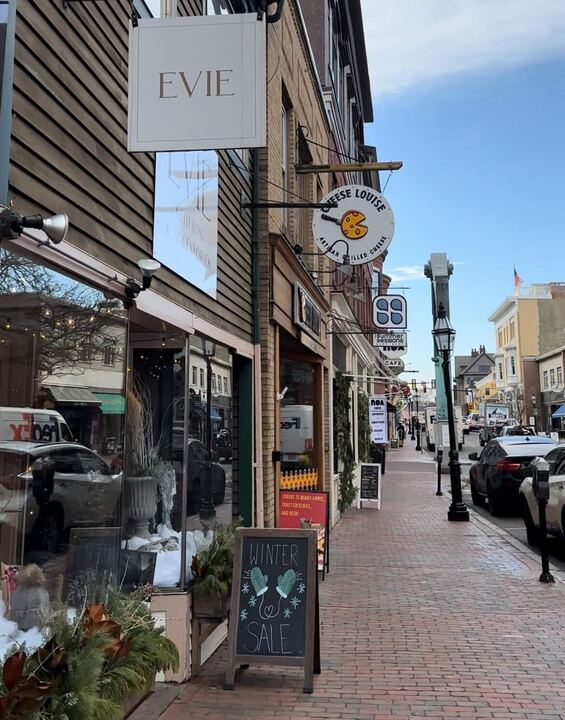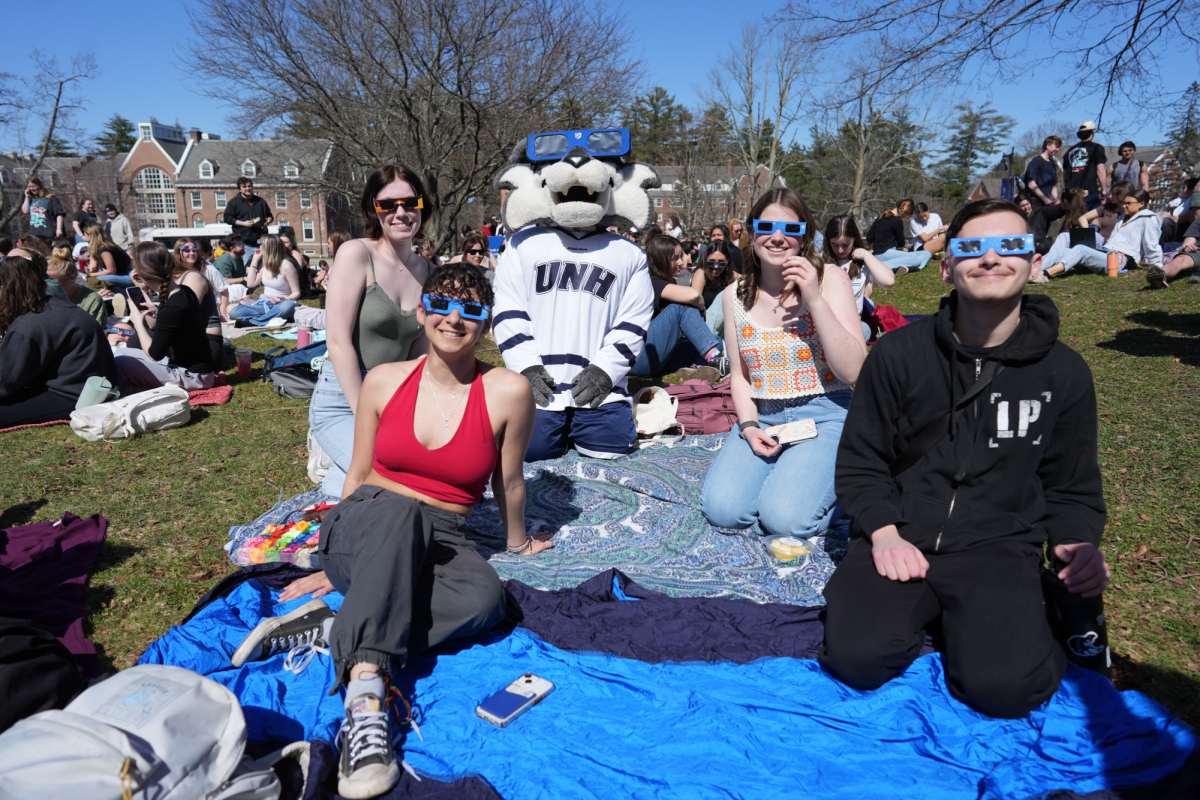In yet another blockbuster meeting, the University of New Hampshire’s (UNH) Student Senate debated and approved a second round of student organization budgets in a record-breaking four-hour-long eighth meeting of their 40th Session.
In its previous budget meeting – held on Oct. 21 – the Senate approved budgets of the New Hampshire Outing Club (NHOC, passed with three nays and five abstentions), Mask and Dagger (passed unanimously), the Memorial Union Student Organization (passed unanimously), the Campus Activities Board (passed with one nay), the Diversity Support Coalition (passed unanimously) and the Organic Gardening Club (passed unanimously), but not without significant contention and scrutiny – especially surrounding the NHOC budget – over the use and significance of the allocation of Student Activity Fee (SAF) funds. Over the course of Sunday’s assembly, a similar atmosphere emerged as the body presided over its own budget as well as budgets for the Student Committee on Popular Entertainment (SCOPE), the Student Environmental Action Coalition (SEAC), Slow Food, The New Hampshire (TNH), WUNH-FM, and the Organizational Resource Fund (ORF) for the upcoming 2019-20 fiscal year (FY20).
Over the course of the night, multiple groups presented budget proposals reflecting significant changes to their standard operations and event calendars; in presenting SCOPE’s FY20 budget, for instance, Business Manager Derek Steele submitted two versions for consideration due to upcoming maintenance repairs for the Whittemore Center and its ice rink arena, where SCOPE typically holds a major concert and another large show during the spring semester. Steele stated that the group’s long-term financial standing depends on the timing of the refurbishments, which he said look to be executed in the next semester as originally planned.
“So, basically, now that the actual rink is over 20 years old, they’re trying to do some preventative maintenance to ensure that they can just operate more effectively for the next hockey season,” he said as he recounted an email from Memorial Union Building (MUB) Coordinator of Leadership & Student Organizations Nate Hastings, “and because of that, it’s unlikely that we’re going to have two programs in the Whittemore Center, so the fact that we might not be able to have a spring show has affected our revenues.”
Between the two budgets, SCOPE’s revenues drop from a projected $245,000 to $141,325 as a result of the repairs. Steele added that SCOPE is looking into putting on smaller shows in venues like the Memorial Union Building Granite State Room (GSR) or the Fieldhouse across the street from A Lot, which neighbors the Whittemore Center.
SCOPE’s alternative budget, when taking the renovations into account, showcased a consequential altercations in funds allocated for programming. Among the second budget’s changes were a $47,775 decrease in general production costs (from $156,000 to $108,225), but a $3,500 uptick in advertising money (from $6,500 to $10,000) and a separate $20,600 dedicated to hiring an agent for shows, an expense not present in the organization’s first edition of the budgets. In spite of the changes, the SAF subsidy of $210,900 remained constant between the two versions.
In their discussion of which budget (or budgets) to move forward with, several members of the chamber, including Student Body Vice President Jake Adams, proposed, among other options, passing both budgets and amending the original larger budget to the second smaller budget should the Whittemore renovations proceed as planned; Steele stressed his support for having both editions and conforming to the second version as a potential “fallback,” citing SCOPE’s potential of finding alternative and new ways to bring big names and events to the Durham campus.
“Our concept didn’t change; we’re still going to do everything we can to bring the most popular entertainment we possibly can. It just changes the dynamic a little bit,” he said. “So, it actually gives us the opportunity in the following spring semester to maybe bring something that hits a cross-section of the student body we necessarily haven’t been able to hit in the past because we’re always focused on the big names and big concerts.”
Ultimately, the body divided the question of passing SCOPE’s FY20 budget into two parts, one for each version; the organization’s original larger budget, accounting for the potential use of the Whittemore Center, passed with one nay, while the second smaller proposal failed with 13 yays and 27 nays.
Other budgets faced questions surrounding an organization’s long-term financial sustainability and ability to reach revenue goals, as was the case with the Senate’s debate over TNH’s FY20 budget proposal.
“…I believe that the slight lowering in the proposed FY20’s revenues is going to help TNH meet it 100 percent, or at least to more realistically meet it 100 percent of the time, and to also explore further avenues in order to begin to turn around the trend of losing ad revenue just because print is going out of style,” Velez said as he pointed to the publication’s new website that reportedly pulls in nearly $150 a week in ad revenue itself.
The New Hampshire’s proposal passed the Senate with one nay, after which the Senate took a five minute recess.
Meanwhile, the budgets for SEAC, Student Senate, Slow Food, and the SAF Office passed with one nay, while the proposals for ORF and WUNH-FM passed the assembly unanimously. During discussion of the SAF Office budget, the Senate entered a non-public executive session in order to go “deeper” into a series of proposed budget cuts, per Trustee Merheb, which lasted for nearly an hour. Following the executive session, the FY20 Student Activity Fee was passed with one nay at a final value of $93 a student.
In other senatorial business, the Senate welcomed Victoria Dutcher, Vice President for Enrollment Management, and Robert McGann, Director of Admissions at UNH, as the week’s guest speakers, as they addressed the challenges of balancing diversity and academic qualification in admitting students to UNH, especially during a time a rapidly changing and increasingly mixed demographics.
During the presentation, McGann pointed to declines in the number of white high school graduates and increases in non-white high school graduates, stating that while “some of the minority populations in New Hampshire are quite small, numerically, they’re growing at a rapid pace.”
In the meantime, the body removed Sen. Hannah Conway (Hunter) due to time issues and other commitments – passing with one abstention – while also unanimously welcoming Deniz Kayhan (Jessie Doe, Co-2) and Allyson Smith (Hubbard) as its newest members. The body also took time on Sunday to approve of the 2018 First Year Election Results; out of a total of 422 valid ballots, Juliana Phillips gained a victorious majority to become the body’s newest First-Year Representative at 164 votes, or 39 percent of all valid votes. The results passed the body unanimously as well.
Following debate over the raising of the Student Activity Fee, the Senate adjourned at 10:21 p.m., the longest of any chamber meeting yet this year.
Follow Us on Twitter
Student Senate Update: Nov. 4, 2018 – Budgets Return, As Do Intense Debate and Long Nights
November 8, 2018
Leave a Comment
More to Discover



























